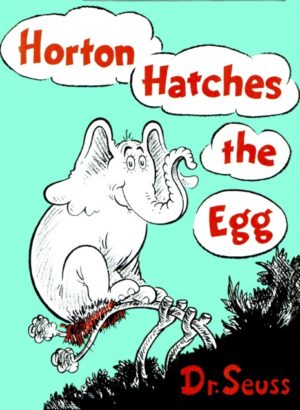

We might take both elephants together as Seuss's mixed feelings towards parenthood and his own lack of children. Our buddy Nel thinks "Matilda" and Horton might be related to this issue: Conveniently, this was the same year Seuss wrote his first kids' book ( source). In 1931, Seuss found out that he and his first wife, Helen, wouldn't be able to have kiddos of their own. That doesn't prevent us from speculating, though. Seuss books can suggest the ways Ted Geisel's views on sex, gender, or parenthood may enter into his books, but they can do little more than suggest-indeed I doubt if Geisel himself was conscious of how such beliefs manifested themselves in his work. Seusspert Philip Nel warns us:īiographical interpretations of Dr.

He managed to be totally popular and scrutinized while maintaining his privacy and an aura of mystery. Seuss was and is seriously hard to pin down.


 0 kommentar(er)
0 kommentar(er)
